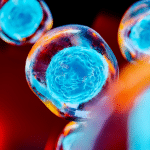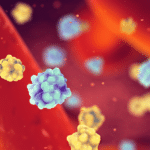Throughout history, cannabis has been described as a treatment for hundreds of different conditions. If scientists find it hard to believe cannabis can do so much, they may chalk up the results as just a placebo. But the placebo effect is powerful. It accounts for roughly half of the efficacy of opioids and antidepressants.
And, ironically, the placebo effect actually functions in part through the endocannabinoid system. The belief that an empty capsule will help an ailment causes your brain to release anandamide, which can kill pain, reduce headaches, and much more.
Not everyone gets the same benefit from placebos, and it tends to run in families, suggesting genetic mutations can alter placebo sensitivity. Researchers at the University of Maryland and the NIH recently highlighted the importance of endocannabinoid genes in the placebo effect. A variant of the FAAH enzyme, which breaks down anandamide, was associated with greater placebo response. The alternative version of this gene is associated with greater rates of addiction and a notably higher pain tolerance. Mutations in FAAH may also relate to obesity, thanks to other chemicals that FAAH regulates. The researchers looked at two other mutations – one in the mu opioid receptor and another in COMT, an enzyme that metabolizes serotonin, dopamine, and many illegal drugs. These mutations interacted with each other to modulate how well people would respond to a placebo.
Read study: OPRM1 rs1799971, COMT rs4680, and FAAH rs324420 genes interact with placebo procedures to induce hypoalgesia
Adrian Devitt-Lee is a research scientist and longtime Project CBD contributor. © Copyright, Project CBD. May not be reprinted without permission.







